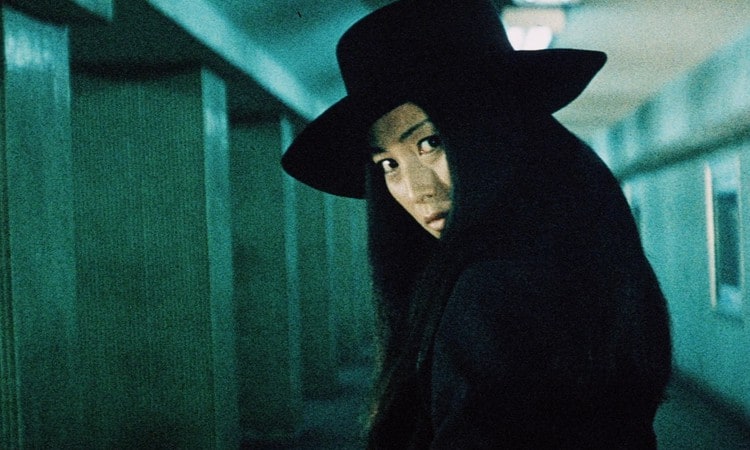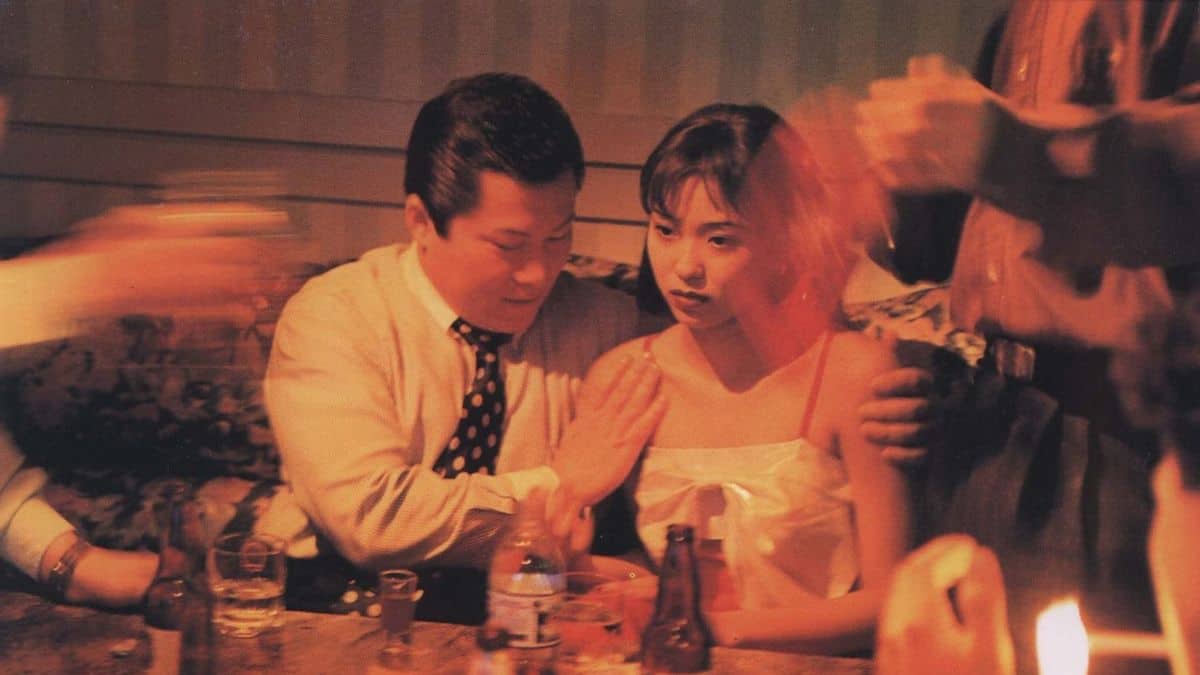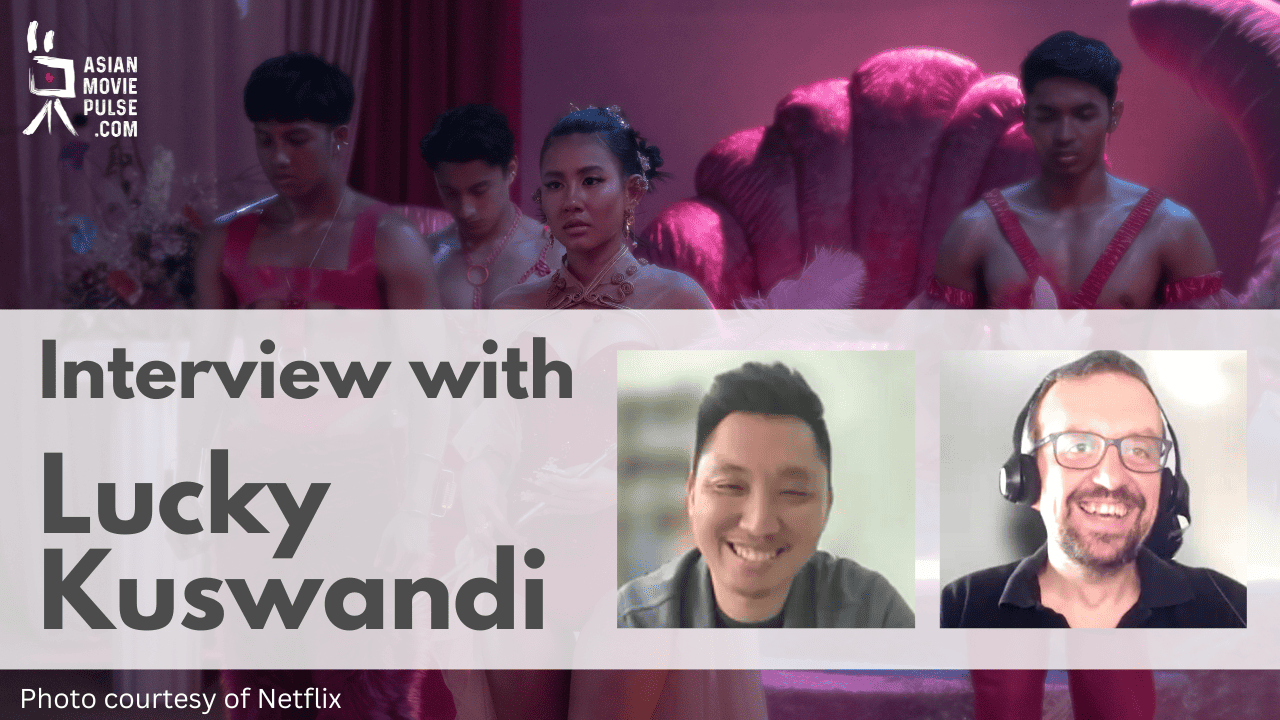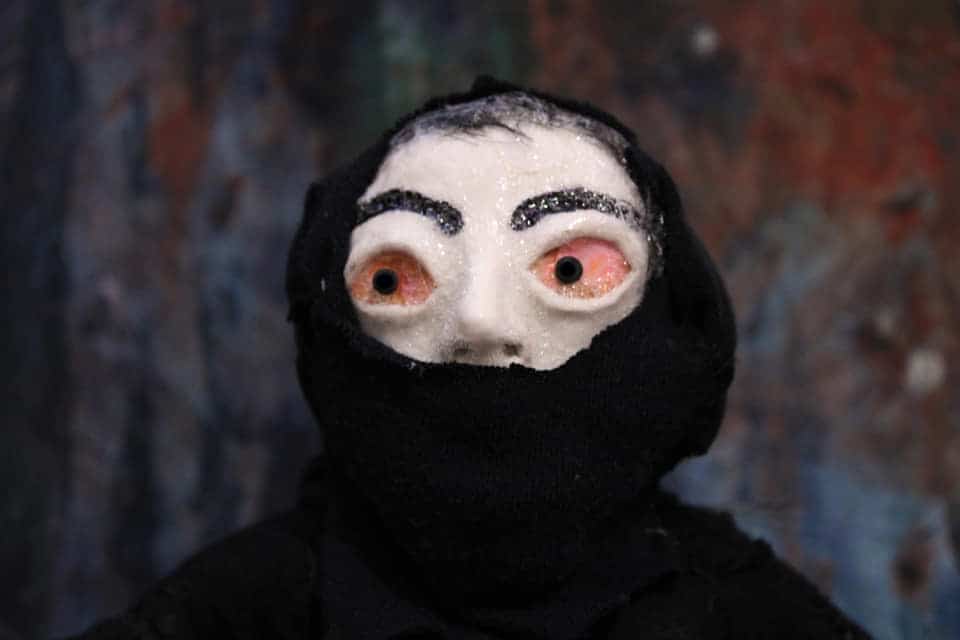Born in 1984 in Ankara, Emre has been committed to storytelling and visual arts since childhood. After a BA in Law and a yearlong experience as a legal intern, he quits. In 2012, he was accepted to MA Filmmaking department at the London Film School. After directing two narrative short films and practiced photography, he graduated in 2014 with his thesis film “The Translator” which was screened in more than 200 film festivals worldwide such as Sarajevo, Premier Plans, Palm Springs, Montreal, won 16 awards and was nominated for the Best Short Film for the 28th European Film Awards. He is an alumnus of Sarajevo Talents and a member of EFA.
On the occasion of “Anatolian Leopard” screening at Thessaloniki Film Festival, we speak with him about broken bulbs, the timeline of the film, Fikret and the political metaphors presented in the story, the zoo, and many other topics.
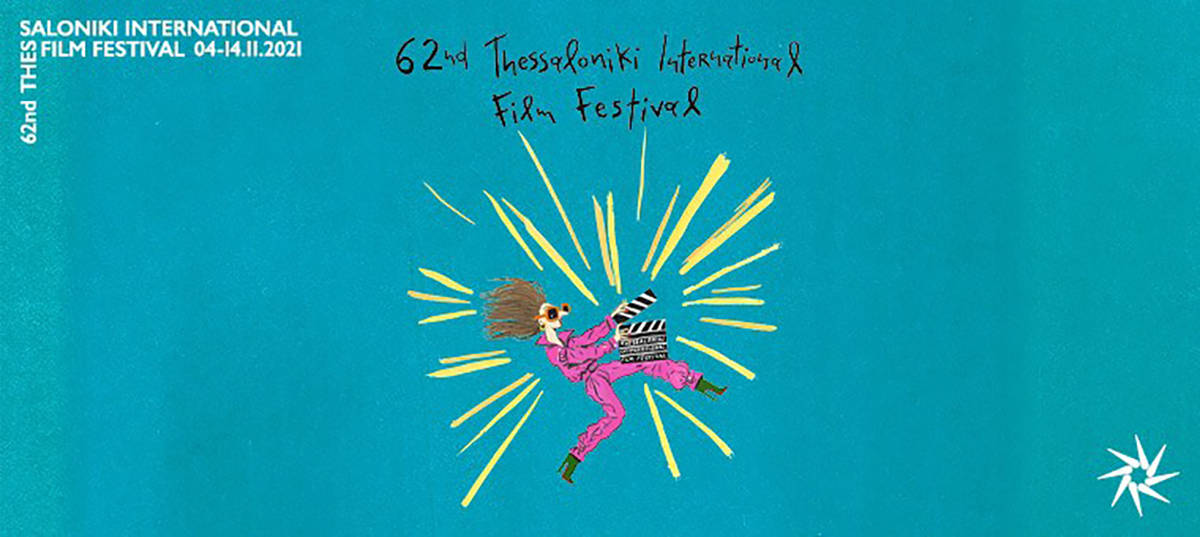
First question, because it really annoyed me during the film, why did people sell broken light bulbs on the street in Soviet Russia?
You are not the first one to ask me this question, I get it in almost every Q&A. I left it open on purpose, because the scene is actually about the character not the story. But since you asked me, in the Soviet Union, everyone had a government job, and the government kept renovating, so when a bulb was broken, the next day a new bulb would be in its place. So, when people wanted a new bulb, instead of buying a new one which was expensive, they would buy a broken one from the street for much less, then go to the state office with the broken lamp and ask to have it replaced.
I am not sure when the story takes place. Is it in the past or the present?
This was also an intentional thing, because I wanted to make the story timeless, by stating that something like that could happen at any time.I like watching films with social and political commentary, but I also like films that were made in the 40s for example, and you can still understand their point clearly. Therefore, I wanted to make a movie that people would watch in 30 years, and still get its point, because regarding human nature and behaviour, some things never change. I am also highlighting little things, what is happening with the neo-liberal politics in Turkey, something that could apply to both today and 20 years ago, because things have not changed that much actually in that regard. I also play with the locations, because the story takes place in Ankara but it also seems as if it is taking place in another city. The Ankarans, or the people who know Ankara, can easily see that some things are changing but I am bringing them back, because the zoo is already destroyed actually. Essentially, I am telling a story about my own Ankara.

There is a parallel in what happens to Fikret with what happens in the zoo and the leopard. Why did you choose this approach?
Yes, it is exactly this thing, I wanted to use the anatolian leopard as a metaphor inside its microcosmos, which is the zoo. Starting from this, from a place that nobody cares about, if it changes or not, I wanted to reach a macrocosmos, a catharsis which is Fikret's situation, who proves that someone actually does care about this microcosmos. I wanted to use these elements to tell the story of Fikret and of the society, because the story of the film is something universal, about how people are living under the shadow of these inhumane politics. Fikret and the zoo and the leopard and the society presented in the film are actually mirrors of each other, that was my intention in their presentation.
How would you describe Fikret to someone who does not know him? Also, is someone you would go to have a drink with?
(laughter)I have to tell you about something that is very interesting to me. While I was making this film, my feelings for Fikret also changed. Because this is my first feature film and it took me five years to make, which is a long time, also for a person's life. I always see him as an anti character and I also see the film as a comedy, instead of a drama, not of the laughing out loud variety, but one that ends up being comical because it is absurd, tragic if you prefer, regarding a guy who never did something wrong, something that could cause a schism for example, but now he is doing something big, and he desperately tries to hide it as a serial killer. And considering his face and overall appearance, this is funny.
He is coming from this lost generation and the new generations are undermining these ones, considering them very traditional and out of place. But in that sense, I find them very daring, because due to their greed, they tried to change the world. They didn't succeed in the end, but Fikret is a genuine anti-character, opposite even from them, because he is utterly conformist, in contrast to other guys like the owner of the bar in the ice-skate ring who is a socialist, he is in the Union and he cares about things and still thinks their time will come. Or the man who tells the story about the bulb who already made some money and went to the other side; everyone has a chair and they are caring for it but Fikret does not have a chair and realizes he cannot sit anywhere, this is how he feels.
On the other hand, he still has his own narcissism and tries to keep the little thing that he has, because he does not want to lose everything, and that is why he does not dare to change. He is losing his space and in the end, he is cornered by the situation and that is why I kind of like the guy. However, due to his conformism and his narcissism, he finds himself so noble and does not want to make his hands dirty, and that results in an intense inner frustration, as he reveals talking to the leopard. In that sense, I am getting angry at him, but to answer your question, yes he is a guy you can get a beer with.
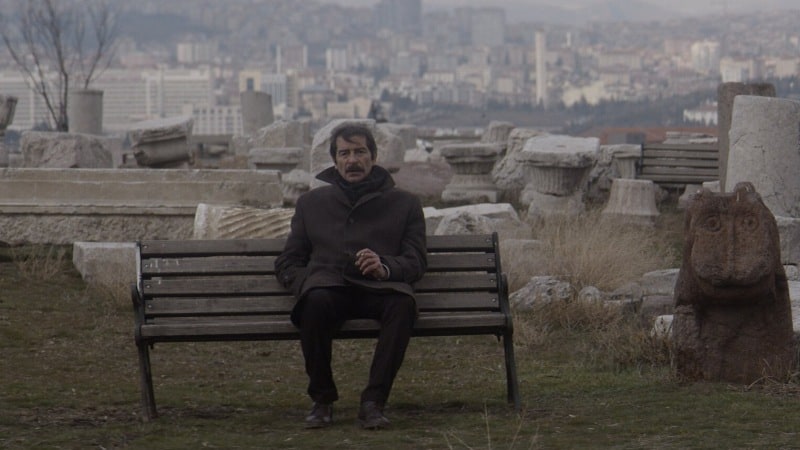
Maybe just one.
(laughter) Yes, maybe just one. To come back to the initial point, in the beginning I kind of liked him more, then I started to get frustrated towards him. When I see him from “afar”, I see a guy that tried, but his problem is the same one with the Opposition in Turkey, who are just stopping and watching and they consider themselves superior from the ones governing. But when it is time to get their hands dirty and lead and do something, they do not want to do anything.They are scared of not doing things correctly, so they always play things safe. This makes them comfortable, and that is why I wanted to make Fikret uncomfortable, to see how he would act. In the end, I chose to have him return to his chair, not daring to take Gamza and leave and start a new life. He turns back to his narcissism and decides to give himself up, because he thinks that would make him more noble, if he got fired and ended up in prison. In the end, though, he realizes he cannot even do that, because of the way the system works, and that is what enlightens him.
In general, I think this conformism is all over the place, and people see themselves in the mirror more beautiful in this conformism, and that is why they decide not to get their hands dirty. That is my perspective on the political side of the film, who and how is going to take the lead, because all these populist leaders that govern the world now, people like me tend to make fun of them, because they are ridiculous but they are the ones in power and what we are doing is just mocking, which is definitely not helping us. Fikret is one of those people, and for this he deserves a beer, maybe two, but no more than that. (laughter).
Tell me about that giant in the movie, Ibrahim. Where did you find that guy, was he a basketball player or something?
No (laughter). His name is Seyithan Özdemir. He is a former bodyguard, he appeared in a couple of music clips and I think in a couple of little roles in TV series and in a film, in very short roles.
How tall is he?
He is around 2.07 I guess, he is one of those guys that when you shake his hand, yours is lost in his. I was looking for a character that has a golden heart but also an interesting appearance. When I first came across him, I was told that he might not be able to act, because, in the things he did before he was just standing around, never speaking. However, when I talked to him, I was convinced that he could play the role. And it is not an easy role, Ibrahim is heavily autistic, but in the end, he did a good job. It was not easy, because I needed some specific things from him, like sleeping or opening his mouth and it took some time to achieve the desired result. He is not an actor, but maybe now he will be (laughter).
The movie also comments on the ways news, and particularly fake news, affect people. Can you elaborate?
This is something that is both part of our culture and a universal element. When something happens that goes against the government and the people in power in general, instead of thinking logically, a blaming culture takes over, and people think completely irrationally. For example, if someone loses his bag, instead of thinking that they might have left it somewhere, they start thinking that a secret organization is following them and stealing the bags because they are the most important people in the world. This is also part of a lie sold to people, that they are so precious and everybody is on their heel. It all starts from this kind of culture, so, in the film, when the leopard disappears, due to Fikret's actions, nobody thinks that he could be the one responsible. Instead, they think that someone is trying to stop the project, essentially they think more than they need to. And then, there is always someone who tells a lie, for whatever reason, in this case someone stating that he saw the leopard, which makes people like the Mayor think that the animal was kidnapped or something else absurd, and then more people start believing the lie also. This is a nice way of portraying how crazy society can be and how people can believe lies much easier than the truth.
In another point, the story of the Anatolian leopard is also interesting in itself. Every five or ten years, you read in a newspaper or the web, that someone saw the animal somewhere. Maybe this is human nature, a need to believe that extreme things exist, because the child inside of us needs to believe in miracles.
Regarding the prosecutor, did he actually know from the beginning that Fikret did it, or was he just trying to lure him?
I think he did not know in the beginning, just like the Mayor and the police chief, he thinks in his own way, but when he comes to the zoo and sees the flowers, he starts questioning the whole situation, also because he is a different kind of person than the aforementioned. It is at that point he realizes that Fikret is somehow involved, although he does not know why or how. For me, when they meet for the second time, even though he does not have proof, he wants, just like Dostoyevski's prosecutors, Fikret to confess without him doing anything. Essentially he opens his heart to Fikret, telling him, “I know you did it, but I cannot prove it, so can you please confess?”.
Can you tell me a bit about casting Ugur Polat for the role of Fikret, and your cooperation with him?
He is a well-known actor in Turkey and also valued much as a theater actor. He became famous in the 90s for his leading roles, not necessarily in art-house films. When I was writing the script, I did not think of him straight away, but his face was in my mind somehow, and I was curious how he has aged. I was thinking of someone who looks Mediterranean, but also someone who represents the previous generation, someone with a mustache, someone who is not really adapting to now. When I saw Polat, I realized he fits the role perfectly.
Before the casting process, I met with an old, well known director, and he was asking me about my next project. I told him about “Anatolian Leopard” and he got excited and asked me about the lead. I told him about Polat, and he got even more excited, picked up a small phone book, gave me his number and insisted on calling him immediately. I thought about it a bit and called him in the evening, we talked, I sent him the script and the next morning, we met and he accepted the role, he said that he wanted to play Fikret.
When we were making the film, our interactions were not always easy, he has a very strong personality. I do not like to explain much, I am always trying to explain the motivation behind the scene, since we are going scene-by-scene instead of the whole picture. In every scene, I am asking if they realize the motivation and if we both understand each other, I let them act, and I am correcting little things, asking to give a different performance if necessary. I like to cast the correct person for the role and give them complete freedom, but having explained the motivation first. For example, in the scene in the boat where he is smoking, the motivation is that he is disappointed and he is thinking of going to the prosecutor. It is not like he is just smoking, he knows the motivation. This is how we worked, and sometimes we fought a bit, which is nice.
Can you tell me about the zoo, its location and how you ended up with that particular one?
It is an interesting story actually. When I started writing the story, I wanted to use the zoo in Ankara, which is the oldest one, and because I am from Ankara. After I wrote the script, I read in the news that the zoo was going to be demolished and made into an amusement park, just like my script. So what I wrote actually became reality and it is funny that things went in this direction. However, it was also very upsetting, because we lost the opportunity to shoot there and I had to find another location.
Did Arabs buy the real zoo too?
(laughter) No, not Arabs this time, my story is close to reality but not that much. I searched a lot in Turkey, but I could not find anything that exhibits the same melancholy, the same feeling I am trying to reach with the movie. However, when I was travelling to some festivals with my short film, I was in Poznan in Poland, and it was a very cold, snowy day and I was walking in the city. Eventually, I heard that there was an old zoo there also, so I decided to visit and I was surprised to see how similar it was to the Ankara one. I read about its story and found out that its architect was also German, it was built in the same period, and they had not touched it much, everything looked old. I was so happy and I called my producer when I got back, and told her I found the zoo in Poland. She was not happy about it (laughter). We brought in a Polish co-producer and we shot the interiors in Ankara, in an old sugar factory office which I like very much, also by a German architect, and the exterior shots in the old Poznan zoo. That place is also changing, the last time I saw it they were renovating the buildings. Essentially, I had to rebuild the Ankaran zoo in Poznan, from my memories.
Can you tell me about the current situation of the Turkish movie industry? Is it easy to shoot a movie, how censorship works, etc.
It is never easy to make films in Turkey, traditionally. There is only one fund, by the Ministry of Culture; actually, a second one has emerged in the last five years with the help of national television. If you do not secure one of those two, it is really hard to make a film. In our case, we had the backing of the Ministry of Culture, but it was not easy to get. You have to pitch your stories differently in order to be eligible for the funding. This is essentially a kind of censorship, since if you do not hide your political perspective or you include some sort of taboos, your chances of getting funded are pretty low. The other problem is that we do not get European Union funding, and so to come up with a co-production, we first have to secure the Turkish fund and then apply to countries like Germany or France for example. That is why it is very hard to make films in Turkey.
Are you working on anything new?
I am working on a couple of different things, both of them focus on the concept of identity again, an existential perspective of human nature. One of them is about a secret agent and the other about an ambassador who is trying to prove that the Turkish people are coming from a higher race. Let's see which direction I will go (laughter).





